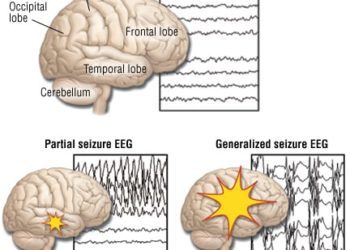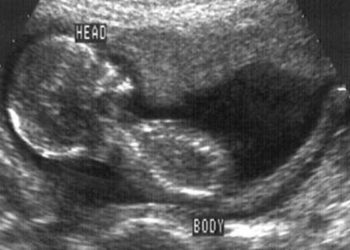Cardiovascular and all-cause mortality in patients with poststroke epilepsy associated with choice of antiseizure medication
1. Individuals treated with lamotrigine had significantly lower cardiovascular and all-cause mortality compared to those treated with carbamazepine, whereas patients treated with valproic acid had an increased risk of both cardiovascular and all-cause death.
2. Levetiracetam was associated with a reduced risk of death from cardiovascular disease compared to carbamazepine.
Evidence Rating Level: 2 (Good)
Study Rundown: Stroke is the most common risk factor for new-onset epilepsy in adults. However, clinical decisions regarding the choice of antiseizure medication (ASM) for patients with poststroke epilepsy (PSE) is often difficult due to concerns about enzyme-inducing drug effects which could theoretically increase cardiovascular risk and interact with other drugs used for secondary stroke prevention. This cohort study assessed whether cardiovascular and all-cause mortality varied with different ASM monotherapies in patients with PSE. The primary endpoint was all-cause death, assessed via Cox proportional hazards regression using carbamazepine as the reference. Cardiovascular death was analyzed using Fine-Gray competing risk regression models. Among 2,577 patients with PSE who received ASM monotherapy, those treated with lamotrigine had significantly lower hazard of cardiovascular and all-cause mortality compared to those treated with carbamazepine, whereas patients treated with valproic acid had an increased risk of both cardiovascular and all-cause death. Levetiracetam was associated with a reduced risk of death from cardiovascular disease compared to carbamazepine. These findings suggested an association between ASM selection and mortality among patients with PSE. A limitation of this study was the absence of demographic statistics on several key factors that may influence and thus, confound the selection of ASMs including functional status and epilepsy severity.
Click to read the study in JAMA Neurology
Relevant Reading: Impact of carbamazepine, lamotrigine, and levetiracetam on vascular risk markers and lipid-lowering agents in the elderly
In-Depth [retrospective cohort]: This cohort study included 2,577 patients (1,400 men [54%]; median age [IQR], 78 [69-85] years) with acute stroke from Sweden between July 2005 to December 2010, and subsequent onset of epilepsy before December 2014. All eligible patients with poststroke epilepsy received continuous ASM monotherapy. Compared to carbamazepine, the adjusted hazard ratio of all-cause death was 0.72 (95%CI, 0.60-0.86) for lamotrigine, 0.96 (95%CI, 0.80-1.15) for levetiracetam, 1.40 (95%CI, 1.23-1.59) for valproic acid, 1.16 (95%CI, 0.88-1.51) for phenytoin, and 1.16 (95% CI, 0.81-1.66) for oxcarbazepine. Compared to carbamazepine, the adjusted hazard ratio of cardiovascular death was 0.76 (95%CI, 0.61-0.95) for lamotrigine, 0.77 (95%CI, 0.60-0.99) for levetiracetam, 1.40 (95%CI, 1.19-1.64) for valproic acid, 1.02 (95%CI, 0.71-1.47) for phenytoin, and 0.71 (95%CI, 0.42-1.18) for oxcarbazepine.
Image: PD
©2021 2 Minute Medicine, Inc. All rights reserved. No works may be reproduced without expressed written consent from 2 Minute Medicine, Inc. Inquire about licensing here. No article should be construed as medical advice and is not intended as such by the authors or by 2 Minute Medicine, Inc.







